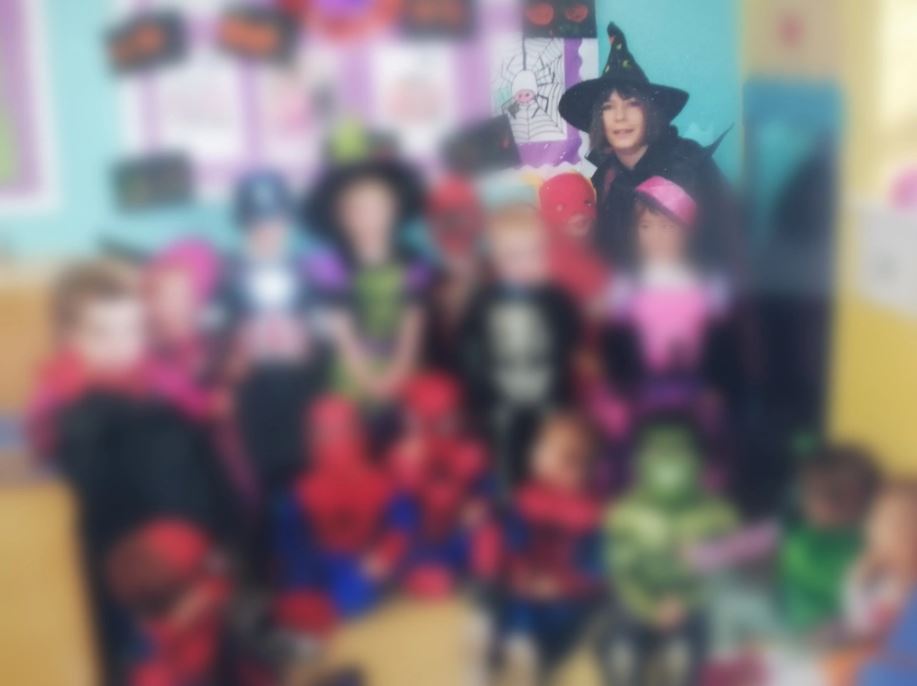
SAMHAIN, ALL HALLOWS DAY OR HALLOWEEN?
Today is the 31st of October, which for most of the Western world means Halloween: a time to dress up (or forget most of your clothing and just go out in your undies if you're a certain age and gender), to watch scary movies, and if you're still young enough it means trick or treating. Funny, that last modern tradition - we spend 364 days of the year telling our children not to accept sweets from strangers and then for one night of the year we practically force them to do it. It's a strange holiday altogether, isn't it? Halloween is very commercialised and bears very little similarities to the festival that it started out as. But that's what tends to happen with most traditions and holy days, they change as the years pass and as different religious and political leaders take over: Ostara became Easter, Yule became Christmas, and Samhain became first All Hallows Eve and then Halloween.Here, in Ireland, today's celebration started out as Samhain - the end of the summer and the start of the third harvest. The people gathered to celebrate the harvest and to mark the start of the dark half of the year. It was in fact a new year celebration, with sunset on the 31st marking the start of the Celtic new year. So Samhain was both a way of giving thanks for what you have been given (crops, harvest etc) and a celebration and preparation of what was to come. Huge bonfires were lit (a Samhain tradition we still uphold) and these fires were said to represent the nurturing heat and light of the sun as well as cleansing and purification powers. All hearth fires were extinguished only to be relit from the bonfire, thus bringing the sun's heat, light and blessing into the home. So nothing scary, nothing horrific. Samhain is however linked with the dead, but not in the scary way Halloween is today. For the Celts, Samhain marked the start of a long, hard winter, a winter that many would not survive; so it makes sense that death would be hovering in the wings of this celebration. But it hovered in a positive and rather beautiful way. For the Celts, Samhain meant that the boundary to the Otherworld was thin and spirits - ghosts - could join our world. Now that's a scary prospect, or so you would think. But for our ancestors celebrating Samhain it was more of a happy thought: loved ones were coming to visit! Places were set at the table and food was set out for them. I like to think that at Samhain, instead of trying to scare each other as we are wont to do today, families sat down and reminisced about loved ones who had passed, that they smiled and rejoiced in what they had known, who they had loved. But I'm probably being a bit naïve, because if friendly ghosts could visit then surely malevolent ones could also, and so there is a link with today's celebration: scary ghosts whom the Celts scared off by dressing up in masks and costumes.
So why did the Irish Celts stop celebrating Samhain? The answer is Christianity arrived and eradicated almost all of the traditional ways and celebrations - or at the very least altered them to fit into Christianity. So as I said before , Ostara became Easter, Yule became Christmas, and Samhain became All Hallows Eve. All Hallows Eve came into being around the 8th century when Pope Gregory the Third designated November the 1st as a time to honour all saints in heaven. He called it "All Hallows" but today we tend to refer to it as All Saints Day. The liturgical celebrations begin on 31st October - All Hallows Eve or All Saints Eve - and end on November 1st. November 2nd is All Souls' Day, a day to remember and commemorate the faithful departed. So, we're back to the dead again if nothing else!
Today, we celebrate Halloween. Some of us celebrate All Hallows and All Souls' Day as well, but very few celebrate Samhain. Halloween is however very close to the traditional Celtic festival - bonfires, dressing up, ghosts and spirits - but we no longer see it as a harvest festival or as a time to get together to celebrate the years' achievements or to prepare for the long winter ahead. Today, more's the pity in my opinion, Halloween is about fear, the supernatural and the macabre. It has become a celebration of horror. It's a shame that we have lost the element of nurturing, of family bonds, of friendship and community that was originally a part of the Samhain festival. I'm all for dressing up and I'm partial to the occasional scary movie, but Halloween has all but lost its meaning. It's a commercial event without a soul. I'm not a religious person, but the Christian celebration at least has at its core love as opposed to horror. So for me, I won't be celebrating Halloween. I shan't be celebrating All Hallows Day either. Instead I think I shall reflect on the light half of the year that has passed and I shall contemplate the year ahead. More importantly I shall sit quietly this evening and think of those l who have gone before me and remember them with happiness and love.
Oíche Shamhna faoi mhaise!
Post Views : 166